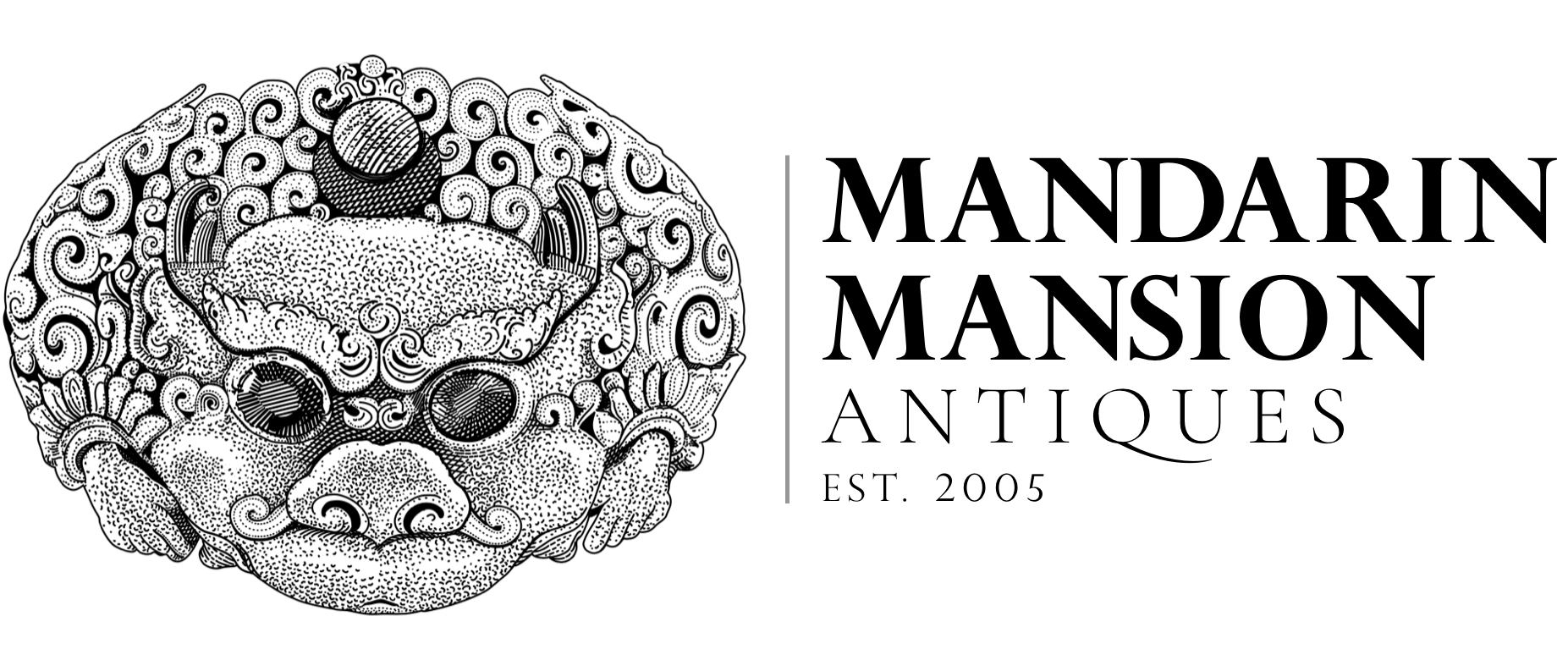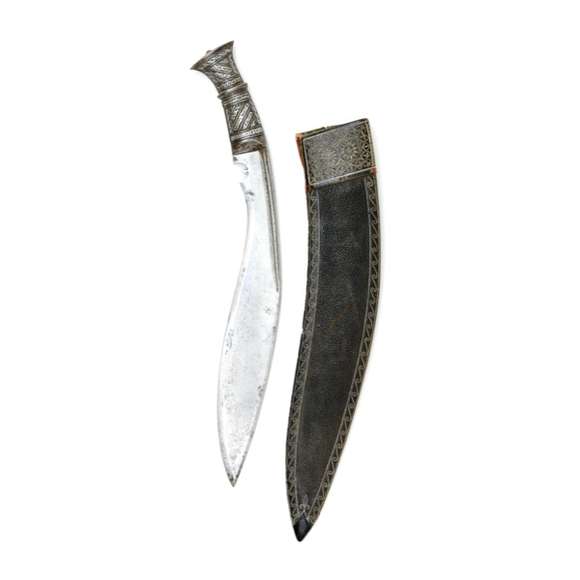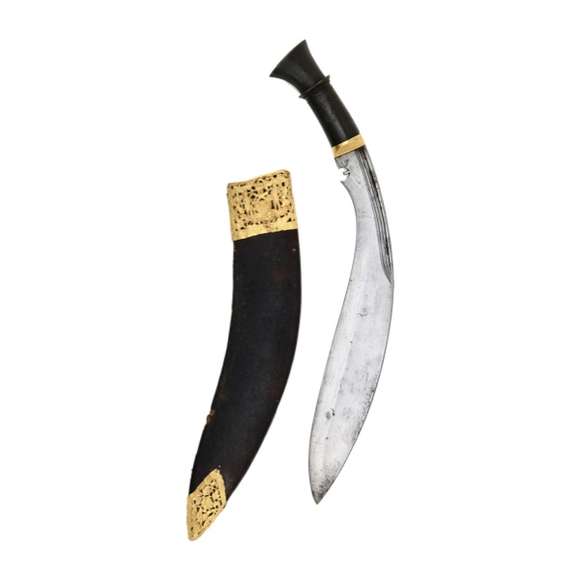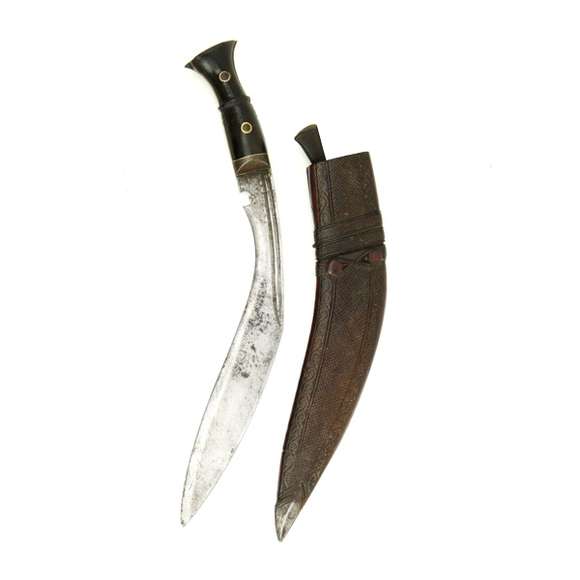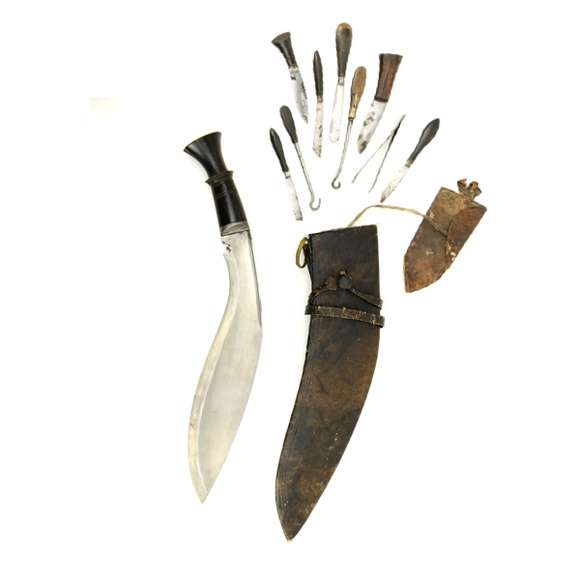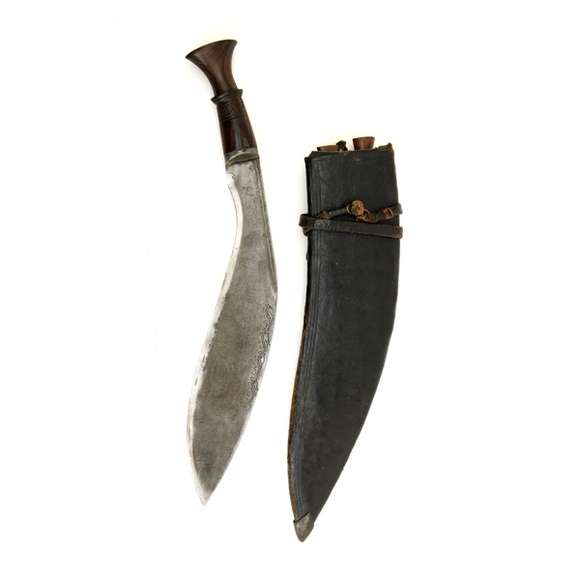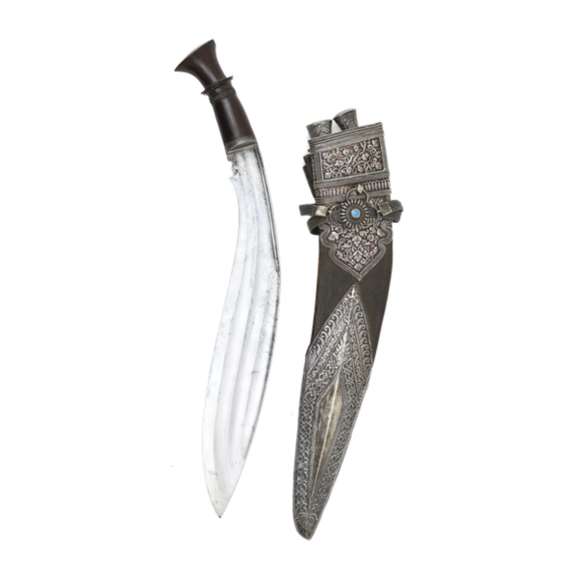Language: Nepali
Source: A 1931 dictionary
Description
Āṅa (आङ) literally means "body" and more specifically the back of the body.1
Āṅa khukurī (आङ खुकुरी) is the name of a khukurī with a blade with flat sides, without grooves.2

A khukurī with flat sides and no grooves, called āṅa khukurī.
Sold by Mandarin Mansion in 2020.
Sub-types of groove layouts
Among antiques, we typically encounter four main types of blade:
Āṅa (आङ); flat, like a kitchen knife.2
Āṅa khol (खोल् आङ); a single fuller running along the spine. (Commonly called ang khola.)
Du'i cirnu (दुइ चिर्नु); "two split", two fullers in the blade. (Commonly called dui chirra.)
Tīna cirnu (तीन चिर्नु); "three split", three fullers in the blade. (Commonly called tin chirra.)
Also see: A Nepalese khukurī glossary
Notes
1. Sir Ralph Lilley Turner; A comparative and etymological dictionary of the Nepali language. London: K. Paul, Trench, Trubner, 1931.
2. Resham Shercha, an ex Ghurka. Personal communication.
